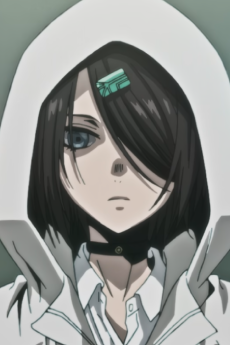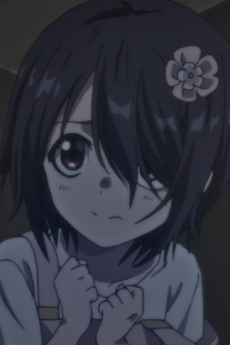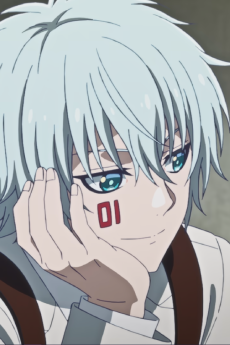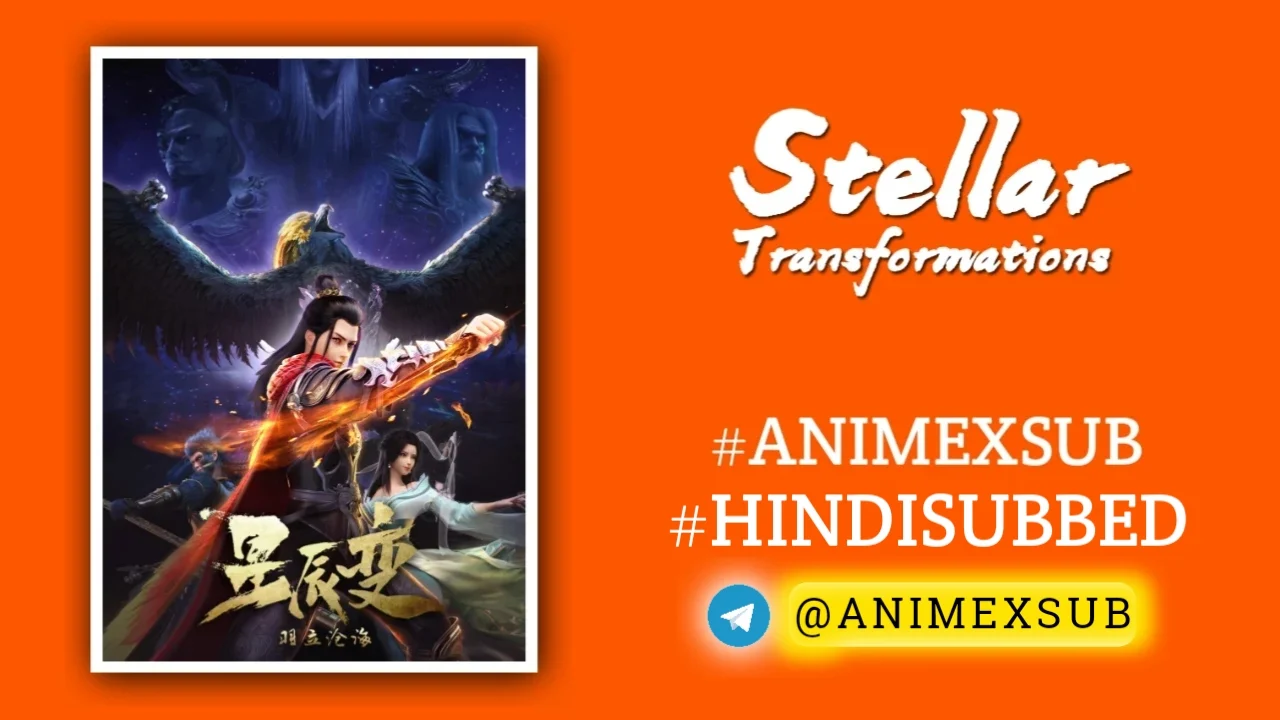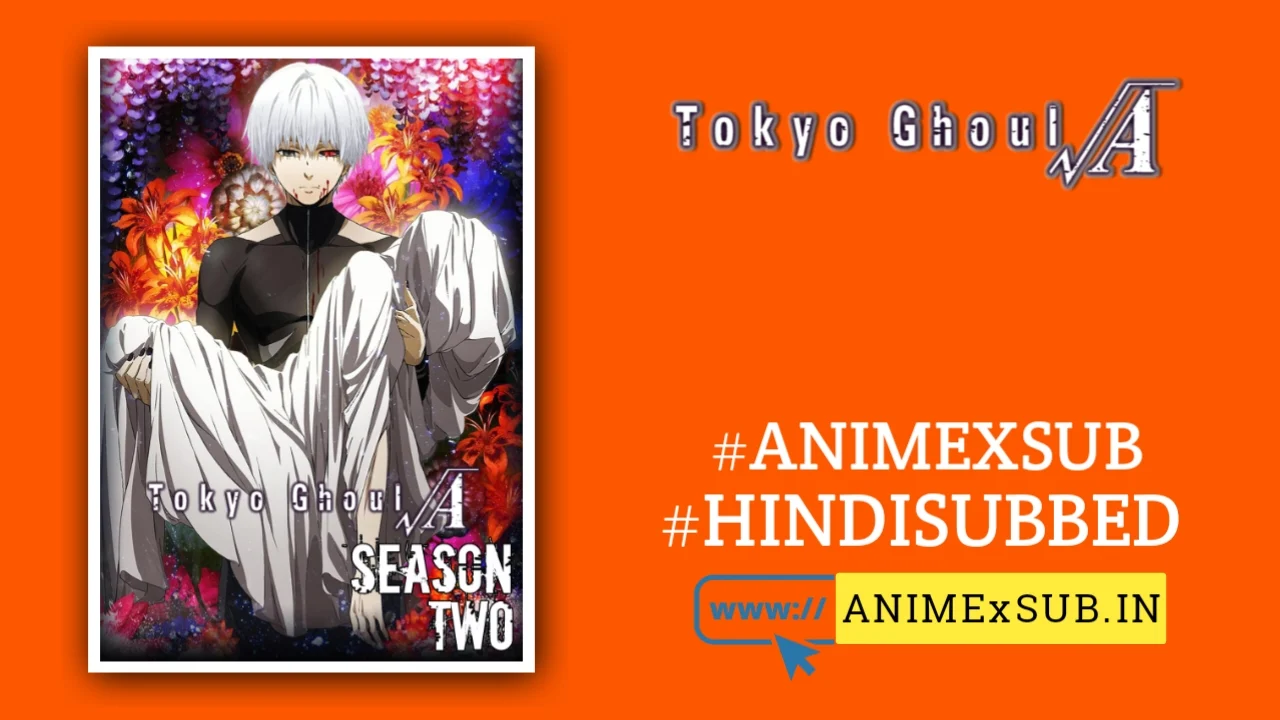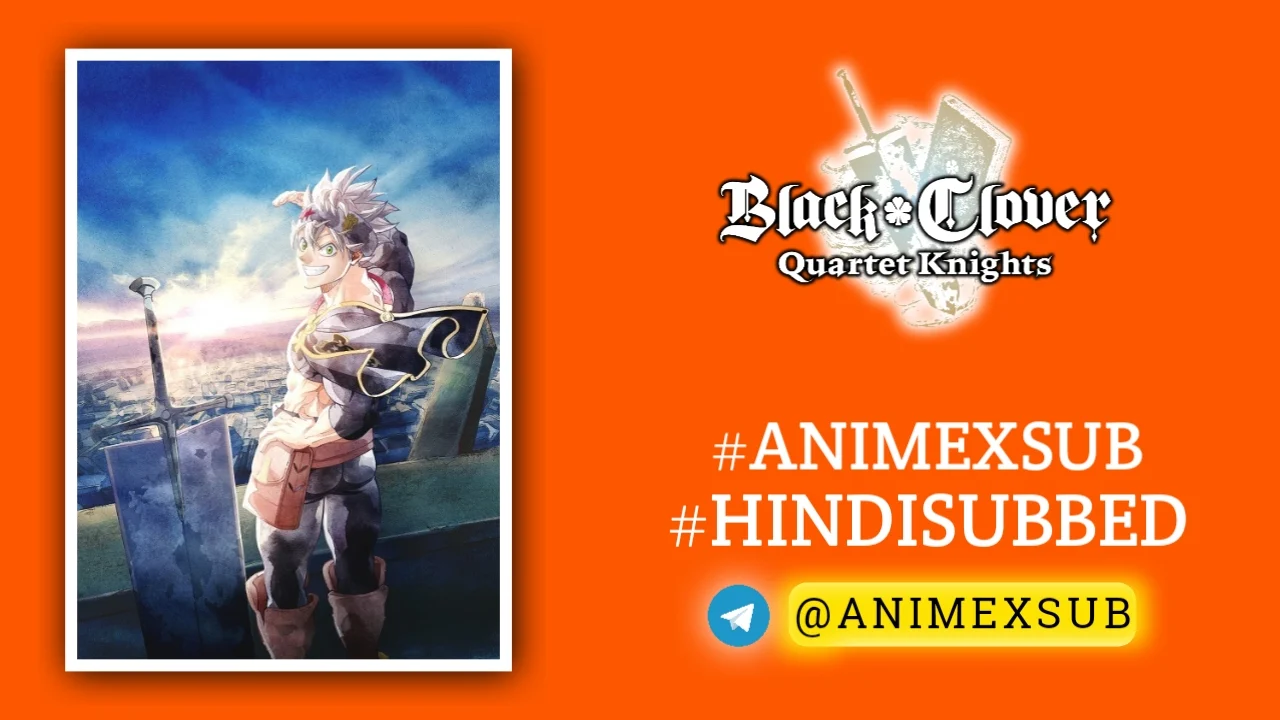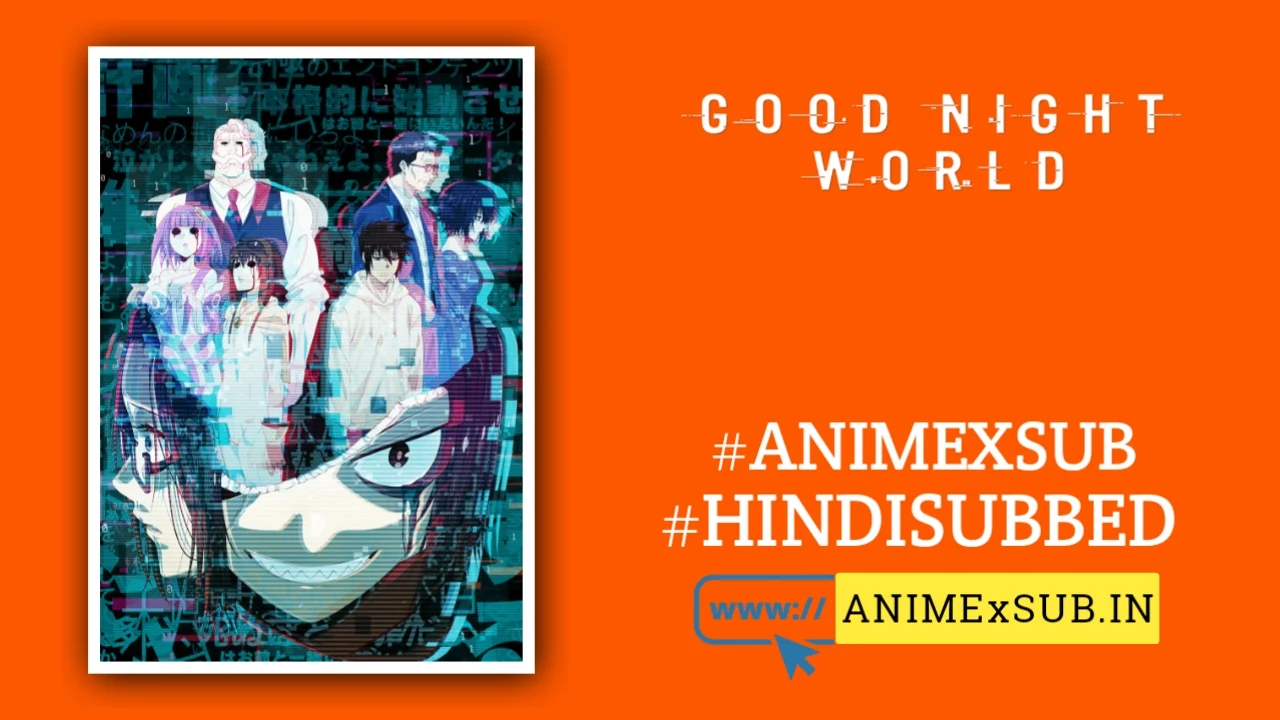
Good Night World Hindi Subbed [12/12] {Complete}
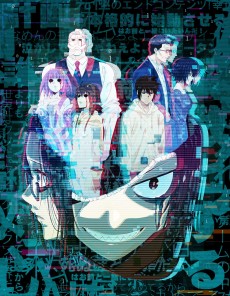
Good Night World
GOOD NIGHT WORLDSynopsis
In the online game "Planet," there is a powerful team of four players. This team goes by the name "The Akabane Family," and its members are a pseudo-family that only exists in the game. Although they aren't aware of it, these four players are actually a broken family in real life. A shut-in older brother. A high-achieving younger brother. A father who is not respected by his own children. A mother who neglects her own household. They do not know the warmth of family. They also don't know that the warmth of their online family is only a passing feeling. And most of all, they don't know they are a real family. Centered on the deeds of the Akabane Family in the online game "Planet," the story features battles against monsters, clashes with other guilds, and the machinations surrounding "Black Bird," the final objective of the game. The tale takes a major turn as it entangles the real world and this real family. (Source: Netflix)
Watch Trailer
Characters
Echoes of Inevitability: The Asteroid’s Shadow Over Human Frailty
In the dim glow of flickering emergency lights and the relentless tick of a doomsday clock, Goodbye Earth Season 1 unfolds as a Korean Netflix series that dares to confront the apocalypse not with explosive spectacle, but with the quiet unraveling of the soul. Released on April 26, 2024, this 10-episode miniseries, adapted from Kōtarō Isaka’s novel Shumatsu no Fools, transports viewers to Woongcheon City in South Korea, where the announcement of an unstoppable asteroid collision—set for February 22, 2026—ignites a cascade of societal collapse. Martial law grips the nation, the wealthy flee to illusory safe havens, and the remnants of everyday life dissolve into a tapestry of despair, scams, suicides, and opportunistic crime. At its core, the narrative orbits four intertwined protagonists: Jin Se-kyung (Ahn Eun-jin), a resolute former teacher turned city hall volunteer; her enigmatic partner Ha Yun-sang (Yoo Ah-in), whose mysterious return from abroad hints at buried secrets; Woo Sung-jae (Jeon Sung-woo), an assistant priest shepherding a flock in chaos; and Kang In-a (Kim Yoon-hye), a no-nonsense military commander enforcing order amid dwindling supplies. What emerges is not a tale of heroic defiance against cosmic odds, but a raw dissection of how impending oblivion amplifies the petty tyrannies and unspoken longings that define us.
Fractured Timelines: Navigating the Narrative Labyrinth
One of the series’ most audacious structural choices—and its most divisive—is the non-linear storytelling, a deliberate mosaic that leaps between past and present, forcing audiences to piece together the emotional shrapnel of lives interrupted. Episode 1, “Football, Bloody Hell!”, opens with Se-kyung haunted by a personal tragedy involving child trafficking, her vow for vengeance clashing against the broader cataclysm. As the timeline fractures, we witness flashbacks to pre-announcement normalcy: Se-kyung’s classroom days, Yun-sang’s unexplained exile in the U.S., Sung-jae’s quiet ecclesiastical routines, and In-a’s disciplined patrols. This approach, while innovative, often leaves viewers adrift in a sea of temporal disorientation, mirroring the characters’ own disarray. By Episode 4, “Felix Culpa,” the threads begin to converge as Se-kyung and In-a embark on a perilous confrontation with traffickers, their alliance forged in shared fury rather than the asteroid’s shadow. Yet, the asteroid itself—affectionately dubbed “the fool’s end”—lurks more as a psychological specter than a physical threat; its approach is mentioned in terse news broadcasts and graffiti, but rarely visualized, emphasizing human folly over interstellar drama.
This fragmented style draws from Isaka’s novel, where absurdity underscores existential dread, but the adaptation amplifies the confusion through rapid cuts and withheld revelations. For instance, Yun-sang’s subplot, involving a blinking red implant and covert research, feels truncated—likely due to post-production edits following actor Yoo Ah-in’s real-life controversies, which excised significant scenes and left narrative gaps that echo like missing puzzle pieces. Critics have lambasted this as a “chaotic sequencing” that fails to sustain engagement over the 12-hour runtime, yet for those who persevere, it crafts a hypnotic rhythm akin to a fever dream, where each jump reveals layers of regret and resilience.
Portraits in Despair: Characters as Mirrors of Mortality
Goodbye Earth excels in its character-driven intimacy, transforming archetypes into vessels of profound vulnerability. Ahn Eun-jin’s Se-kyung stands as the emotional fulcrum—a fierce protector whose trauma-fueled rage propels her through moral ambiguities, from vigilante justice to safeguarding orphaned students. Her performance, raw and unyielding, captures the paradox of a woman who, in the face of global extinction, clings to micro-scale redemption, smuggling children from exploitative networks while dodging military scrutiny. Jeon Sung-woo’s Sung-jae, the reluctant priest, embodies quiet fortitude; abandoned by his superior, he ministers to a congregation unraveling in faith’s absence, his arc exploring how dogma crumbles when eternity stares back. Kim Yoon-hye’s In-a, the armored enforcer, provides a counterpoint of pragmatic brutality—her supply runs through riot-torn streets highlight the erosion of authority, yet her budding rapport with Se-kyung unveils a hidden tenderness, challenging stereotypes of the stoic soldier.
Yoo Ah-in’s Yun-sang, though diminished by edits, remains a spectral presence: his return sparks suspicion and longing, with hints of a sacrificial past involving anti-asteroid experiments that could salvage a post-impact world. These portrayals avoid melodrama, opting for subtle gestures—the flicker of doubt in Sung-jae’s eyes during a suicide vigil, or In-a’s weary sigh amid gunfire—that ground the sci-fi premise in hyper-real emotional terrain. Supporting ensemble members, like the opportunistic churchgoers and shadowy traffickers, add texture, illustrating how doom unmasks societal underbellies: from black-market “salvation” cults to familial betrayals. In a genre often dominated by ensemble bombast, Goodbye Earth prioritizes psychological depth, making its figures feel achingly real, as if drawn from the headlines of our own precarious era.
Thematic Depths: Hope’s Flicker Amid the Void
Beyond the plot’s convolutions lies a philosophical undercurrent that elevates Goodbye Earth into a meditation on the human condition. The series interrogates despair not as a monolith, but as a spectrum: widespread suicides reflect collective surrender, while scams peddling false escapes critique capitalism’s death throes. Se-kyung’s revenge quest against traffickers posits that even in terminal hours, justice remains a defiant spark—why pursue personal vendettas when the world ends? The answer lies in the show’s core thesis: oblivion doesn’t erase the immediate; it magnifies it. Episodes like “The Girl with a Cat” delve into isolation, as characters grapple with severed connections—Yun-sang’s enigmatic proposal to “missing figures” alludes to lost loved ones, while Sung-jae’s parish becomes a microcosm of fractured community.
Influenced by Isaka’s blend of absurdity and profundity, the narrative weaves in motifs of powerlessness: the asteroid, unyielding and indifferent, symbolizes uncontrollable fate, much like personal traumas that persist beyond context. Yet, glimmers of hope persist—in communal rituals, fleeting romances, and acts of quiet heroism—that suggest resilience as humanity’s ultimate rebellion. This isn’t triumphant survivalism; it’s a somber acknowledgment that meaning derives from the mundane, even as the sky darkens. Compared to Western counterparts like The Leftovers, which revel in metaphysical ambiguity, Goodbye Earth roots its existentialism in Korean cultural nuances—collectivism clashing with individualism, historical scars of division echoing in the coup attempts—offering a fresh, culturally specific lens on universal dread.
Critical Echoes and Viewer Realms: A Polarized Reception
Reception for Goodbye Earth Season 1 has been a battlefield of extremes, mirroring its thematic chaos. On Rotten Tomatoes, it holds a modest 40% from critics, praised for “powerful human moments” by outlets like Ready Steady Cut (4/5 stars) for its authentic exploration of resilience, but slammed by India Today (2/5) for “poor execution” wasting a potent premise. IMDb users average 4.3/10, with complaints dominating: many decry the “boring soap opera” detours into trafficking subplots, the asteroid’s minimal screen time (scarce until late episodes), and timeline jumps that evoke “watching random people in a church argue over arson.” One reviewer quipped, “I skipped to the end and still couldn’t figure it out,” highlighting the frustration of its opacity. Audience scores on Netflix hover around lukewarm, with drop-off rates high after Episode 2, as the slow burn—focusing on emotional decay over action—alienates binge-watchers seeking spectacle.
Conversely, a vocal minority hails it as “slow but good,” arguing it demands investment to reveal its depths; by Episode 5, “I Have Butterflies…,” the character arcs hook those attuned to its rhythm, culminating in a finale that, while ambiguous (does the asteroid strike? The edit implies inevitability without closure), leaves an imprint of haunting impotence. Globally, it charted in Netflix’s Top 10 Non-English TV for weeks, amassing 20.2 million hours viewed, suggesting its depressive allure resonates in an age of real-world anxieties like climate crises. Purists of the source novel note deviations—more emphasis on revenge than philosophical folly—but applaud the visual poetry: director Kim Jin-min’s stark cinematography, with desolate urban vistas and intimate close-ups, crafts a mood of suffocating inevitability. Overall, it’s a series that polarizes precisely because it refuses easy catharsis, rewarding patient viewers with insights into despair’s anatomy while punishing those craving resolution.
Lingering Shadows: Legacy of a Doomed Horizon
Goodbye Earth Season 1 doesn’t reinvent the apocalyptic wheel; it dismantles it, exposing the gears of human imperfection beneath. Its flaws—narrative disarray, underdeveloped sci-fi elements, and a truncated lead performance—undermine its ambitions, yet they also underscore its authenticity: just as the characters flail in confusion, so do we, confronted with a world that ends not in bangs, but in whimpers of unresolved grief. In an oversaturated genre, this Korean import stands as a bold, if imperfect, elegy for civility’s fragility, urging reflection on how we might face our own asteroids—be they cosmic or personal. As the credits roll on Woongcheon’s remnants, one can’t help but ponder: in the final countdown, what farewells truly matter?




